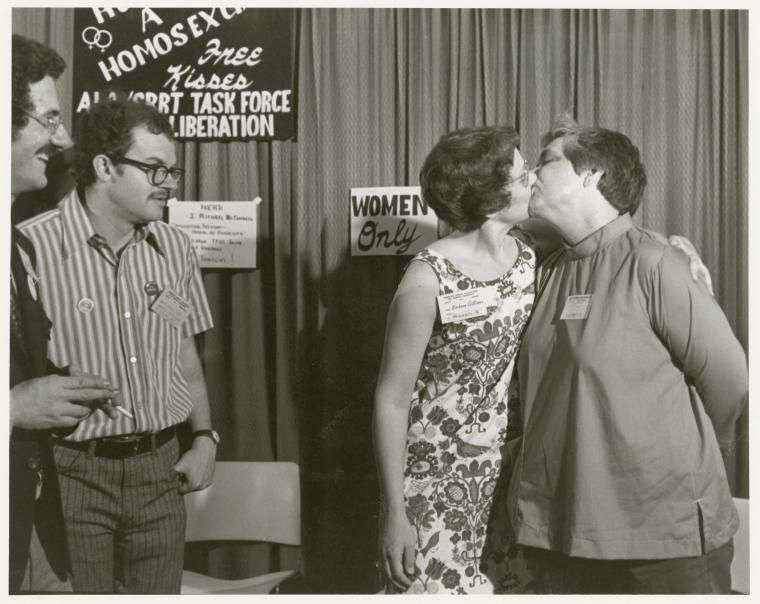Social Responsibility
The history of GLBTQ activism and services in american libraries can trace its roots to be formation of the American Library Association's Social Responsibilities Round Table. In 1968 a petition was circulated calling for the foundation of a group with the purpose:
- "To provide a forum on the major issues of our times - war and peace, race, inequality of opportunity and justice, civil rights, violence - and the responsibilities of libraries in relation to these issues. To examine current library programs on these issues; to propose activities which will increase understanding of these issues. To promote action toward resolution of attendant, critical problems."
The ALA Council approved the formation of the organization in 1969. The first meeting on the SRRT had over 125 people in attendance Attendees John Berry III and Shirly Havens said the concerns brought up at the meeting were "like a catalog of library social weaknesses, the oversights and neglect of recent decades, changes in the society to which the library has not responded". In order to address these social concerns the SRRT set up several task forces.
The founding of The Gay Task Force
According to the ALA, "The Gay, Lesbian, Bisexual, and Transgender (GLBT) Round Table of the American Library Association is committed to serving the information needs of the GLBT professional library community, and the GLBT information and access needs of individuals at large. We are committed to encouraging and supporting the free and necessary access to all information, as reflected by the missions of the American Library Association."
Early Initiatives
Task Force on Gay Liberation did not waste any time getting to work on their mission. The Annual ALA Conference in Dallas in 1971 was the stage for several of their first big tasks.
 |
| Isabel Miller, recipient of the first Gay Book Award |
The first Gay Book Award was awarded during the 1971 conference. This was the first award of its kind and originally it was a "grassroots acknowledgment" of GLBT publishing. In the early years there were only a few books to consider for the award as few books were openly classified as such. The first award was given to Patience and Sarah, a historical novel by Alma Routsong as (Isabel Miller). This award would later be known as the Stonewall Book Award, and currently has three categories of awards.
Hug a Homosexual
During the 1971 ALA conference, the Gay Task Force coordinator, Israel Fishman, set up a “Hug A Homosexual” booth in the main exhibit hall. This has been reported to be the first gay kissing booth. As seen in the photos above, the booth was divided into men only and women only sides. They offered free hugs and kisses to conference goers. However, much like the other task force events, there was not a big turnout. They report that the booth got a lot of attention, but none were brave enough to come up and participate. Instead, the members staffing the booth kissed and hugged each other. This attracted media attention and the footage was shown several times on the news.
 |
| Barbara Gittings and Isabel Miller |


